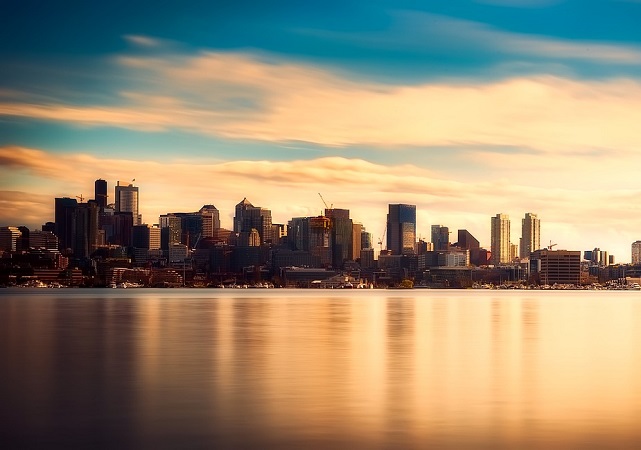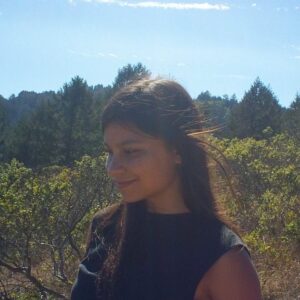Solicita ahora para formar parte de nuestra próxima grupo de Becados en Ciencia científicos comunitarios y líderes comunitarios.

Imagen de Pixabay.com
Georgetown Seattle has faced growing flooding and environmental health risks for decades and is in need of more accessible open green spaces and river access. In addition to this, the Georgetown Open Space Committee is advocating for more public engagement from the City of Seattle about future development and flood protection in the area.
Located in between the banks of the Duwamish River and the King County International Airport, Georgetown is a small neighborhood in Seattle, Washington. Due to its key location between numerous rail stations, the Port of Seattle, multiple airports, and at the intersection of several freeways, Georgetown has experienced massive amounts of industrial expansion for the past 70 years. This has caused many amenities to have been replaced, leaving the community with little to no open and green spaces or river access. Industrialization has resulted in the entire area to be classified as a Superfund site in 2001, with residents having a life expectancy that is 13-years shorter than neighboring communities. Knowledge of the environmental health risks in the area are well documented, with government and independent reports going back to the 1980s.
More recently, Georgetown faces another threat in the form of rising sea levels. Georgetown, and the adjacent area of South Park, are built directly on the Duwamish River Delta and are the most at-risk neighborhoods to flooding and sea level rise in all of Seattle. Future flood risk in the area is well documented, with studies being conducted by the City of Seattle in 1989 and 2012.
Even with the numerous reports from different agencies, little has been done to combat environmental risks in Georgetown. Community members are generally unaware of the threat of future flooding and little information has been shared regarding future flood prevention interventions. Georgetown’s Open Space Committee is dedicated to improving the lives of the community members by increasing public knowledge of future flood risks and fighting for more accessible open and green spaces.
Relevant Articles:
Residents are unaware of the risks they face from flooding and the measures being taken by government groups and non-profit organizations to mitigate flood risks due to a lack of transparency from numerous government and non-profit organizations. First and foremost, residents want to understand what is already known and unknown regarding the future of flooding in their community. This will be achieved through a public engagement and outreach campaign, that will allow community members the opportunity to learn about the multiple reports that already exist. Hearing directly from experts and the city regarding the findings that already exist will help to increase awareness within the actual community that is being impacted.
Furthermore, the Georgetown Open Space Committee wants to develop an actionable plan to increase accessible open spaces and river access points. These green spaces can serve a threefold purpose of increasing outdoor amenities, restoring natural habitats, and mitigating future flood risks. This could include applying for grants that have historically been denied to the Georgetown Open Space Committee but have been approved for near identical projects in the region.
In summary, the community would like help understanding what flood prevention measures are needed, and how accessible open spaces and river access can be obtained so that they can gain a better understanding of their risks and improve their quality of life.
This timeline will become more refined as a community scientist is brought on and plans are developed together:
Chayo Rosario Medina: Georgetown Open Space Committee
Chayo lives in Georgetown and her family has resided in the Duwamish Valley since the 1950’s. The health and well-being of those in the Duwamish Valley are a high priority. Chayo is on the legal committee for Puget Sound Keepers Alliance, a member of the Duwamish Valley Safe Streets, participates on the Gateway Park North River Access project and leads flooding outreach for the Georgetown Open Space Committee as the current GOSC Chair. She serves as a The President of the Friends of Georgetown History (FoGHI) board which coordinates the Annual Haunted History Tour and served as a community hub for Georgetown. She also owns Chayo Consulting LLC. She hopes for true equity and sustainability for all communities. Chayo uses She/Her/They/Them Pronouns.
Dr. Jules Bruck, RLA is Professor and Director of Landscape Architecture at the University of Delaware, where she teaches advanced studios and courses in creativity, design process, field sketching, and ecological planting design. She is a registered landscape architect and a SITES Accredited Professional (AP). In April 2018, she co-founded the Coastal Resilience Design Studio and helped to launch the Coastal Observer online application for citizen scientists interested in documenting changes to the coastal environment. In 2021, she became the Director of the UD’s Mangone Climate Science and Policy Hub. Her current research interests are in coastal resilience, green infrastructure, and public perception of sustainable landscape practices such as designing for ecosystem services. Dr. Bruck has a Ph.D. from Texas A&M University.
Dr. Anand Jayakaran (he/him) is a Professor with Washington State University at the Puyallup Research and Extension Center. His role is to meet education and research needs in a region experiencing the impacts of rapid urbanization, a changing climate, and increasingly diverse communities. He develops strategies to manage water resources using Green Stormwater Infrastructure and ecological engineering principles. Ani’s program aims to positively influence stormwater management decisions that impact traditionally underserved Black, and Indigenous communities, people of color, and lower-income groups. He holds bachelor’s and master’s degrees in Civil Engineering, a doctoral degree in Agricultural & Biological Engineering, and is a professionally licensed civil engineer in Washington.
Leigh Muldrow recently returned to the University of Delaware after receiving a Bachelor of Arts in International Relations and is now in her last year of majoring in Landscape Architecture. She is a senior designer for Coastal Resilience Design Studio working with communities in Delaware designing solutions to a variety of coastal issues. In 2021 she worked on a team of landscape architecture, engineering, and environmental policy students to win the 2021 Coastal Estuarine Research Federation student design competition. She is a 2022 Landscape Architecture Foundation Olmsted Scholar. This fall, she is continuing her work pursuing a Ph.D. in Plant and Soil Sciences.

Sheelah Bearfoot is a program manager at Anthropocene Alliance. She graduated with a degree in Genetics and Plant Biology from UC Berkeley in 2016. She’s Chiricahua Apache, and worked at the Native American Health Center in SF for two years as a diabetes educator before starting a master’s in Environmental Health Science at Hopkins, where she continued her focus on Indigenous health disparities.
Matthew Preisser is currently a dual master’s degree student at the University of Texas at Austin where he is studying Water Resources Engineering and Public Affairs. His research is at the intersection of flood exposure and social vulnerability where he is developing methods to identify household urban flood risk. Matthew is a Community Science Fellow through the American Geophysical Union’s Thriving Earth Exchange where he works with pairing community leaders and scientists together to advance community priorities.
The Georgetown Open Space committee is a group of neighbors, workers and all who vibe, chill and live in the Georgetown area with common goals for more greenery, trails, parks and other open spaces to improve their livelihood. Georgetown is the smallest and most underserved neighborhood in Seattle and happens to be an environmental justice community. More green space will improve the health inequities in the neighborhood.
Many partnership opportunities are possible for adding public art, wayfinding and signage, historical interpretive elements, and improved pedestrian and bike infrastructure in the Georgetown neighborhood. The Georgetown Open Space Committee will continue to explore those opportunities as it works to implement the public space priorities outlined in the Georgetown Open Space Vision Framework.

(c) 2024 Thriving Earth Exchange